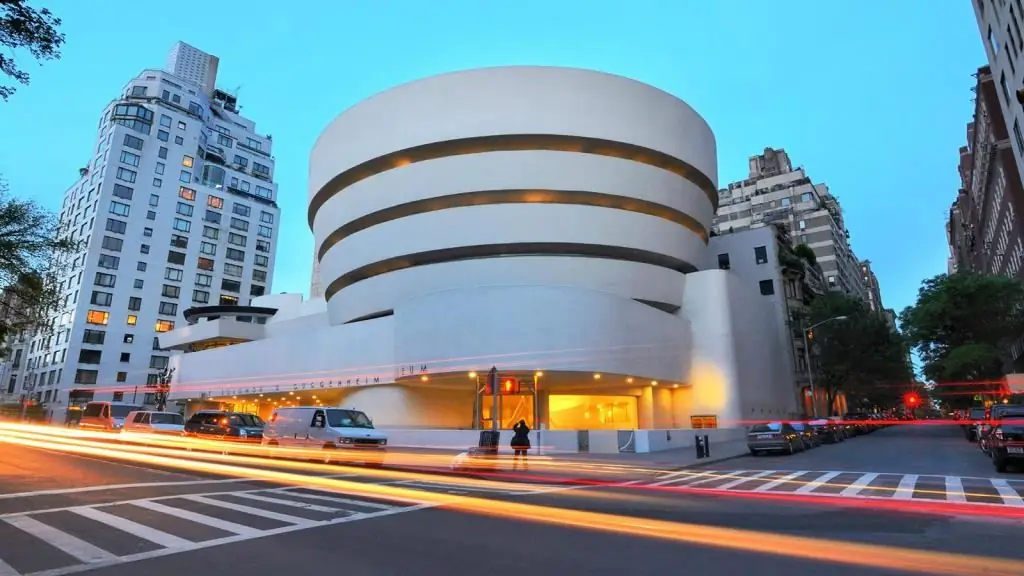2026 Author: Leah Sherlock | [email protected]. Last modified: 2025-01-24 17:46:37
Many people associate gothic style with goths, crosses and black locks. But was everything so dull in the 12th century, when this style had just come into fashion? Of course not. Gothic is primarily lightness and sublimity. During this period, people began to reach for enlightenment and, after that, for something beautiful. Today we will talk in more detail about the Gothic style: where and as a result of which it appeared, the main representatives. In general, read, it will be interesting.
Style in Brief
The word "Gothic" is the name of the style that dominated the Middle Ages. The French called Gothic the lancet style. This art dates back to the 12th century. (until the 15th century) It was at this time that the active struggle of the Catholic Church for power began in Europe. Therefore, all the art that was created during this period was aimed at ex alting the church and faith.

New cathedrals were built, which were beautiful in themselves, and complemented by sculpture andpainting looked simply divine. At this time, all artists used allegories. Now paintings, sculptures, and even decorative items are filled with hidden meanings.
Main Features
To describe goth briefly, it is a style that goes against everything that came before it.

Therefore, a type of art is being formed that denies the classics and represents a natural development and modification of the Romanesque style.
Style features:
- Gothic is first of all sublimity and dynamics. All architecture tends to rise and develop from the bottom up.
- All buildings built in the Gothic style were of great height. This effect was achieved not only due to the walls, but also due to the long, gabled roofs.
- Stained-glass windows began to be used everywhere. They decorate windows, doors and even ceilings.
- Arches became popular among architects of the 12th century, entrance and interior spaces were designed in this architectural design.

Sculpture from the Gothic period has become widespread. Sculptors now decorated not only the interiors and exteriors, but also decorated the walls of the building
Architecture
Gothic mostly appeared in architecture. After heavy Romanesque buildings (with small windows and a minimum of decorative elements), people wanted something light and sublime.

Gothic satisfied this desire. This style of the Middle Ages is divided into three periods:
- Early. In the buildings of this period, the influence of the Romanesque style can still be traced. But still, lightening of structures and vertical decor are already clearly observed. It was at this time that the cross vault appeared, and one can trace the departure of architects from barrel vaults. A well-thought-out system of columns and buttresses made it possible to make buildings lighter and more openwork. Notre Dame Cathedral is considered the most striking building of this period.
- Mature. In the churches of this period, a transition to frame structures can be traced. Instead of glass in the middle of the XIII century. start using stained glass. The windows themselves, by the way, become elongated and take the form of a pointed arch. Almost all buildings of this period are complemented by sculptures and sculptural compositions. The most striking buildings of mature Gothic are the cathedrals in Chartres and Reims.
- Late. During this period, the sculpture gradually acquires not a biblical character, but an everyday one. Even despite the fact that marble and stone statues adorned the walls of the church, scenes from the life of ordinary people were the theme for creativity. The most striking buildings of late Gothic are the cathedrals: the cathedral in Moulin and Milan.
Furniture
In the Middle Ages, Gothic is loftiness and lightness. It was this effect that the craftsmen who made the furniture tried to achieve. First of all, in the everyday life of a medieval person there were such interior items as tables, chairs, chests.

The mostoak was a common and sought-after material. Despite the heaviness of the material, carved chairs with a high back, tables with graceful legs and beds with openwork pillars for a canopy came out from under the skillful hands of the master.
Despite the fact that Gothic is primarily dynamic, medieval people often used static wrought iron bars to decorate rooms. They decorated fireplaces, less often windows.
Arts and Crafts
Gothic is the art of the late Middle Ages. People preferred to use the decor items of the past, but in a new interpretation. Forged candlesticks, goblets for wine and vases enjoyed special love. People did not strive for simplicity; they used church paraphernalia even in their own homes. So, on the tables in the living room one could see crosses and various figurines on the theme of biblical scenes. Often the room was decorated with bas-reliefs and statues. They could be not only biblical, but also mythological.
Painting
Gothic style is not only architecture and sculpture, it is also painting. It was in the XIII-XIV centuries. realism began to emerge. Of course, in the Gothic era, it was not fully formed, but still the most significant works of that period, such as A. Lorenzetti's "Allegory of Good Government", the Van Eyck brothers "Ghent Altarpiece", were made in the emerging style of naturalism.
The faces of all the main characters are quite believable, although the feelings depicted on them are sometimes too simulated. In general, during the Gothic era, it was fashionable to depict bright moments of manifestation on icons.passions. For example, the Mother of God very often on the canvases of artists is in a swoon, and on the faces of the women surrounding her, obvious sorrow and compassion are written.
Practically every painting had a religious character. The artists worked out every detail of their painting. There were no ill-conceived moments, and not a single detail escaped the attention of the creator. After all, it was considered good taste to introduce allegories into your canvases. Therefore, you can find many works of Gothic artists, where images are written in detail on the altar.
Clothes
In the Gothic style, not only the architecture had elongated forms. In clothing, there is also a trend towards pointedness. In the XIII-XIV centuries. shoes with long pointed toes, pointed hats and bicorne hats become popular. The hemlines of women's skirts are also lengthening.

Tails and long veils appear. Corsets do not go out of fashion, but now girls are pulling dresses higher. Clothing with a high waist and a long narrow skirt dominates. All this is sewn mainly from velvet, but silk does not go out of fashion. Sewing was used as decoration. Floral ornament prevails.
Men's fashion is also characterized by elongated shapes. But such clothes were preferred by the older generation. The youth flaunted in cropped trousers and jackets. Men's suits, as well as women's, are decorated with gold embroidery with intricate ornaments. Long powdered wigs are in fashion.
Recommended:
Architectural styles and their features. Romanesque architecture. Gothic. Baroque. Constructivism

The article discusses the main architectural styles and their features (Western, Central Europe and Russia), starting from the Middle Ages, the features and distinctive features of various styles are determined, the best examples of structures are noted, differences in the development of style in different countries, the founders are indicated and successors of each of the styles, describes the time frame for the existence of styles and transitions from one style to another
Gothic castles of Europe. Gothic architecture

Gothic architectural style originated in the middle of the 12th century in Northern France. The efforts of Abbot Suteria contributed to this. This style reached its greatest prosperity in the first half of the 13th century, spreading to the territory of modern Spain and the Czech Republic, Austria and Germany, as well as Great Britain
Gothic painting and architecture

Gothic replaces the Romanesque style of medieval art and initially develops in architecture. The characteristics of the Gothic style are awesome and majestic buildings. Gradually, Gothic begins to penetrate into all areas of art
What is a gothic novel? Contemporary gothic novels

Many modern science fiction writers and representatives of other genres use gothic elements in their works
Diana Gabaldon. Adventure Gothic - the key to success

Diana Gabaldon is an American writer who has written more than a dozen successful novels over the past twenty years. A distinctive feature of her work is the mixture of genres and the predominance of Gothic themes

